Young scientist wins Harper Prize
The Editors of Journal of Ecology have awarded the 2024 Harper Prize to Karina Guo for the best paper published in the journal by an early career researcher.
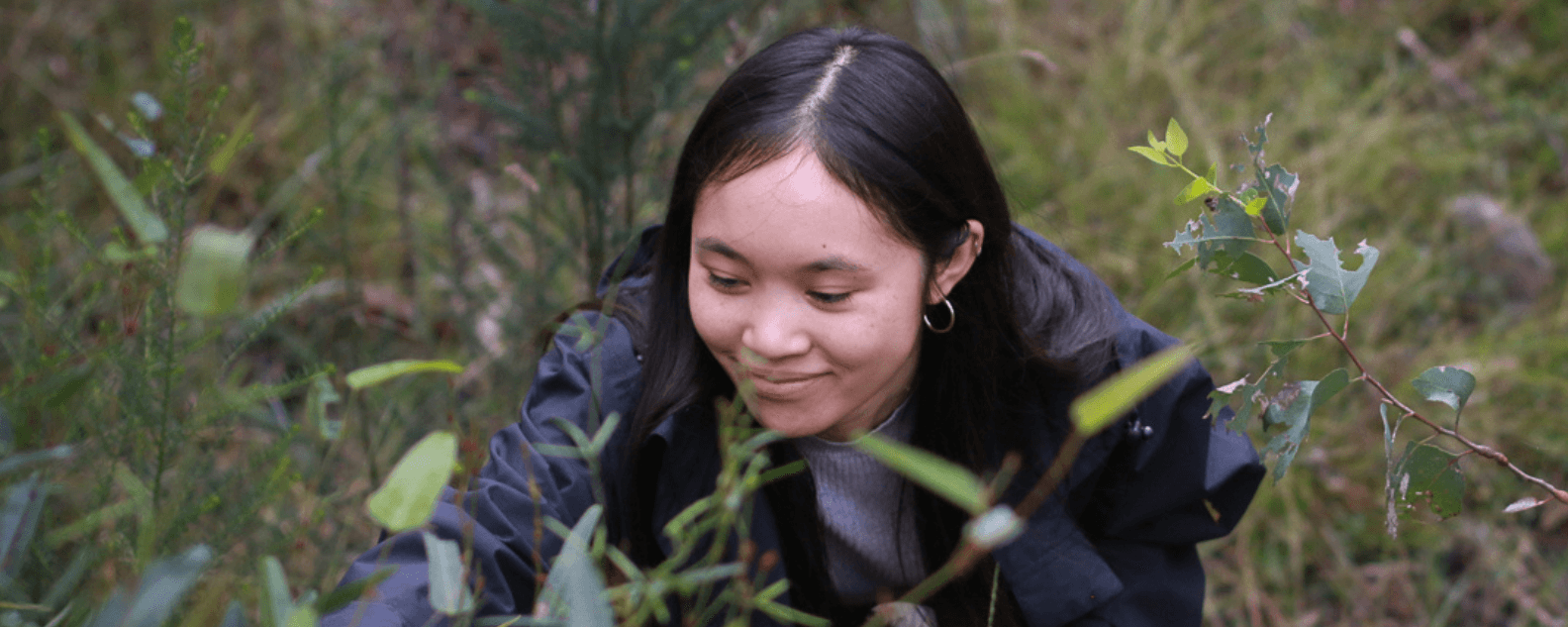
Karina Guo is a Technical Officer with the Research Centre for Ecosystem Resilience at Botanic Gardens of Sydney.
She is the recipient of the 2024 Harper Prize for best paper published in Journal of Ecology by an early career author for her paper on Using machine learning to link climate, phylogeny and leaf area in eucalypts through a 50-fold expansion of leaf trait datasets.
Award winning research: Using AI to understand nature
Karina Guo’s research is one of the first in the field of plant trait ecology using machine learning for data extraction and analysis to explore novel research questions.
Guo found the strengthening of the trait-climate correlation for leaf area of eucalyptus trees occurs just above the species level, indicative of adaptation at the inter-specific phylogenetic level rather than local adaptation within species.
This paper is remarkable in being one of the first operational machine learning applications in trait ecology, demonstrating the potential to quickly and effectively automate the extraction of trait data from sources such as digitised herbaria.
“Traditionally, scientists measure leaf traits, such as leaf area, tediously by hand,” Karina explained.
“By using machine learning to bypass this, I was able to extract leaf traits from historical pressed plant specimens stored in herbaria and to expand our traditional eucalypt leaf area datasets by 50-fold!"
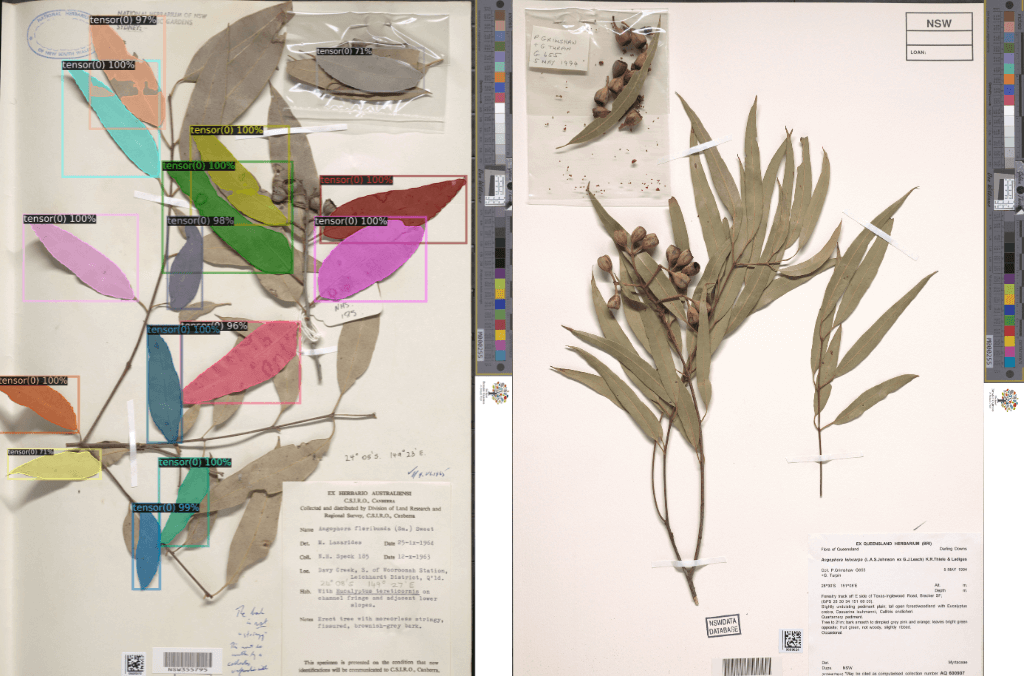
Predictions of the first step from the article’s machine learning model on an Angophora floribunda specimen collected in 1964 (left) and a pressed plant specimen, a herbarium sheet, of the species Angophora leiocarpa collected in 1994 (right)
This work is also remarkable in that it emerged from an undergraduate research project, demonstrating the impact that research can have, even at very early career stages.
“Making the machine learning model was an iterative process, and that meant I was able to in a sense, watch it grow. With each round of model optimisation, whether it was changing hyperparameters, refining the training data, or projecting it onto a testing sheet, I was able to see tangible improvements to the model, “Guo said.
The authors have made the data and code openly available and have no doubt that this work will stimulate a step-change in the expansion of trait databases as well as tests of the ecological and evolutionary drivers of trait-climate relationships for species worldwide.
"I was surrounded by amazing people, each with a depth of knowledge that felt endless,” she says.
“I would like to thank all my supervisors and colleagues that supported me along the way when I doubted myself."
The project was done in collaboration with Karina’s supervisors, Senior Research Scientist, Jason Bragg and UNSW Professor, Will Cornwell.
Read more about this research
Future research endeavours
Working across the Research Centre for Ecosystem Resilience at the Botanic Gardens of Sydney as a Technical Officer, and at the University of Sydney as a Doctoral Student, Karina started her career off in zoology with dreams of working in veterinary science. After realising a love for plants, it quickly pivoted to botany, then inevitably plant ecology.
Karina Guo is now working on researching methods to detect individuals of paperbark trees (Melaleuca quinquenervia) that are genetically resistant. This is critical to the resilience of this foundational wetland species and the multitude ecosystem services it provides.
One of the many questions involved in this research project is understanding how drought stress impacts an otherwise resistant plant.
By doing so, it is hoped that the results will help restoration practitioners such as Landcare groups to incorporate this knowledge into their plans when restoring our precious ecosystems.
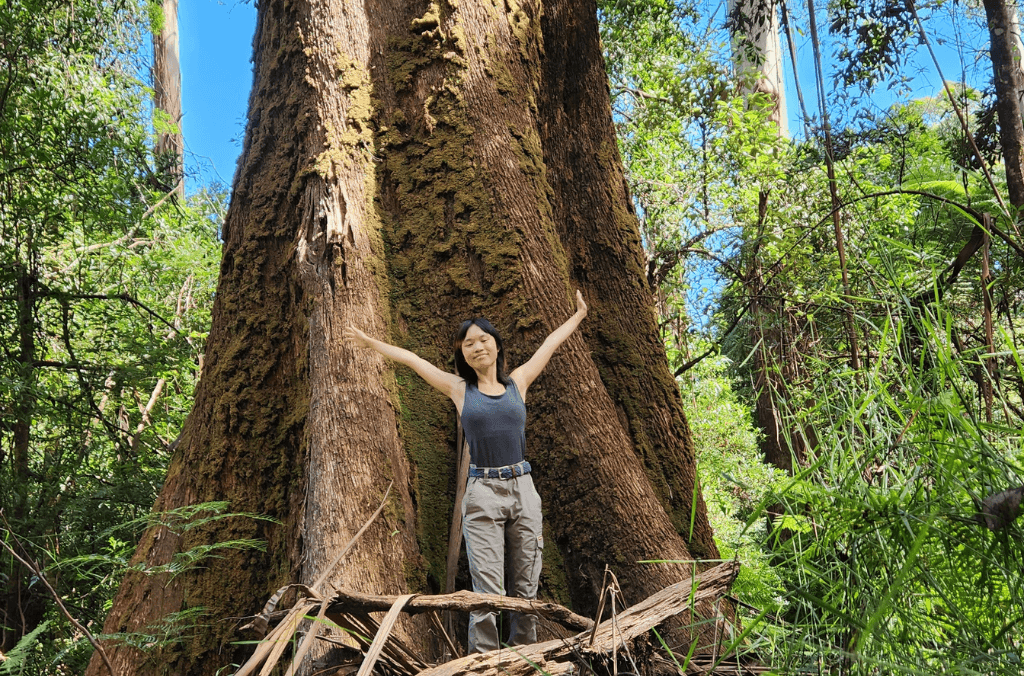
Karina out in the field embracing new research projects
Fighting for a greener future
As a kid, Karina has always been someone who would love to touch, observe, listen, and – also to the horror of her parents – taste the nature around her. Which made her the hiker that stops every five seconds to ogle at something.
“I couldn’t help it really, there was always something to learn and to love about it all. And ecology is all about that. Taking a minute to stop and listen and link the deep interweaving web of connections between everything. So, I don’t think I ever fell in love with ecology – I think I was always a part of it.”
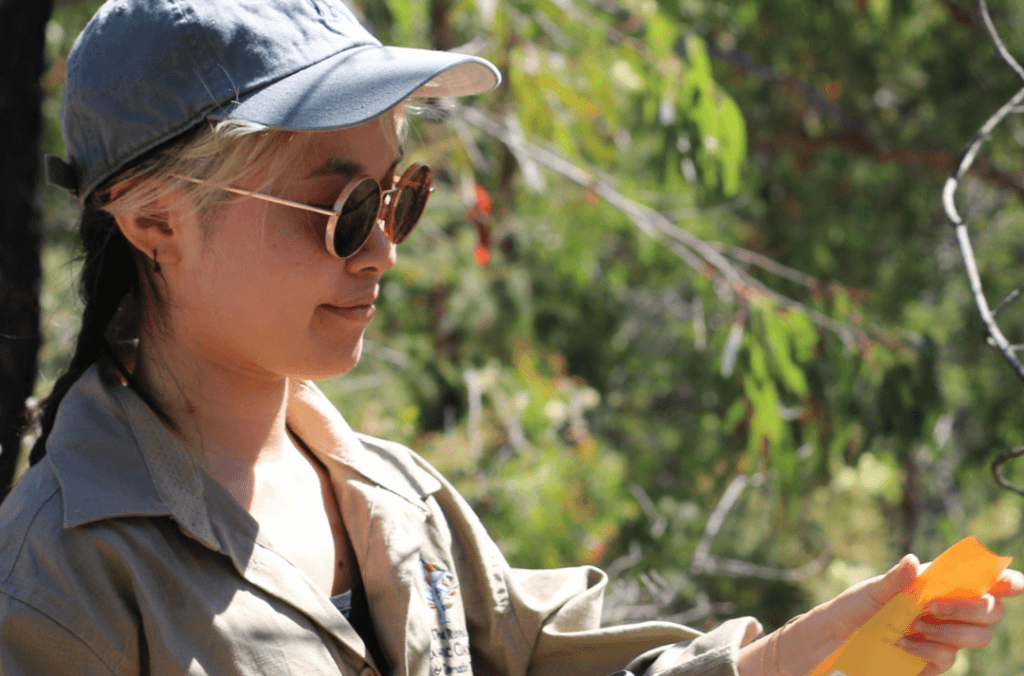
Karina Guo on a field trip with the Research Centre of Ecosystem and Resilience team
Support growing minds
Donate to help build the Botanic Learning Centre — an innovative research and education hub for all ages.
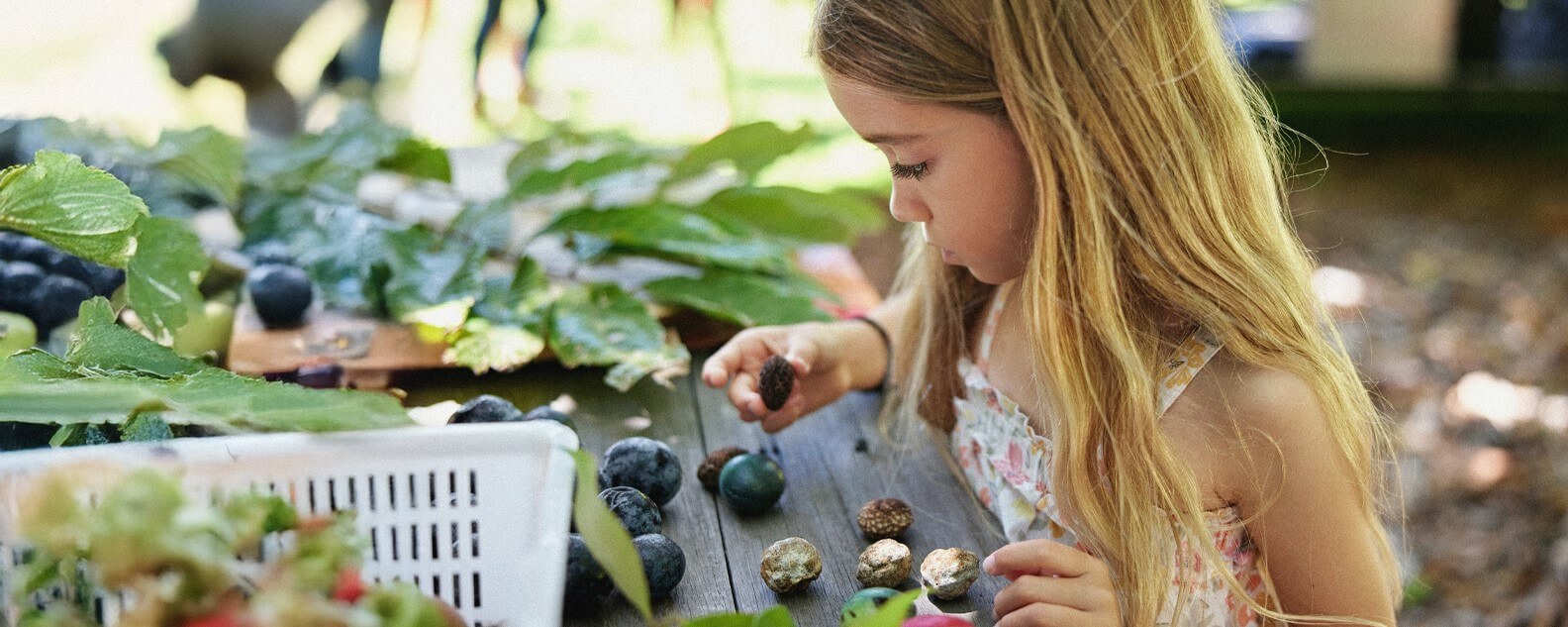
Related stories
A molecular tool could change the future of broad-leaved paperbark, allowing scientists to identify myrtle rust–resistant trees and restore threatened landscapes more effectively.
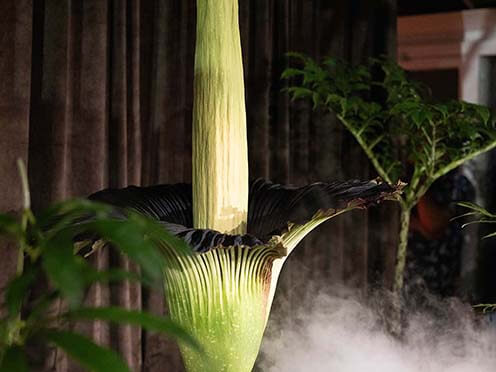
One year ago, a pungent princess captivated the world when she bloomed at the Royal Botanic Garden Sydney. Our new documentary goes behind the scenes to reveal her rapid rise to fame, her extraordinary life cycle, and the conservation work saving this once-a-decade bloomer.
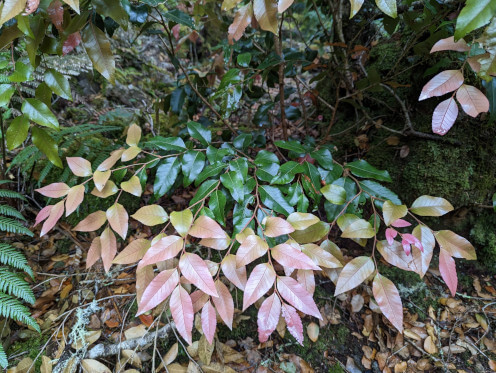
For the team at the Research Centre for Ecosystem Resilience (ReCER), a request from the Blue Mountains Botanic Garden to design a hedge of the towering Nothofagus moorei, or Antarctic beech, sparked a unique collaboration between science and horticulture.